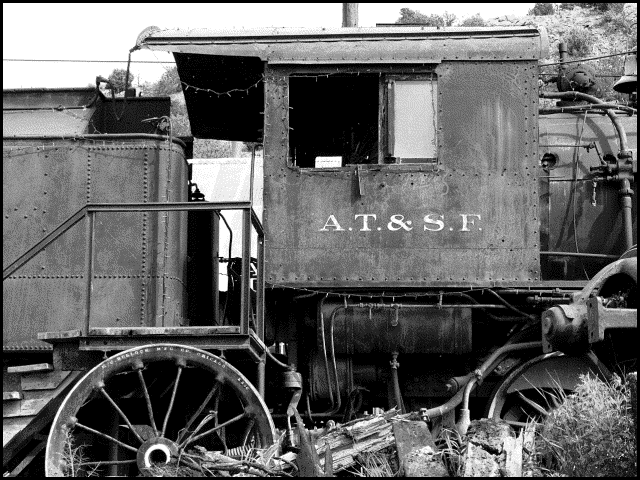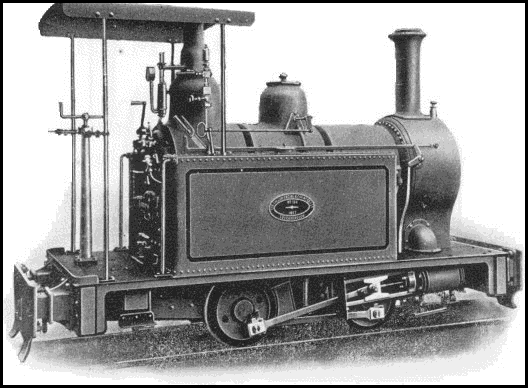Eleven
Minutes
Late
A Train Journey to
The Soul of Britain
Matthew Engel
(Macmillan)Down by the station, Early in the morning,
See the little puffer bellies. All in a row.
See the engine driver, pull the little handle,
Chug-chug, Toot-toot, Off we go.At midnight you could hear the wail of the Florida East Coast as it came to and crossed the Ortega Bridge. I would be abed but not asleep and the cry in the night would be always unexpectedly soulful.
It wasn't a klaxon of the diesels --- that would come later. It was the hoot of one of the great Vulcan steam locomotives that had just left the Jacksonville depot. A music it was; but also a wail, telling of nights alone, the Midnight Special, Number 111 ... bound for Daytona and points south.
§ § § In the summer, Bill Ives and I went off to his mother's camp in Brevard, North Carolina. A short line ran in front of the camp, on the other side of the loblollies, and Bill and I would go over at noon, and leave our hard-earned money --- buffalo nickels --- on the tracks, then lay our heads down on the rails to listen to the music of the oncoming locomotive and tender and single freight car coming the pass to head up into the Pisgah ten miles into the piedmont
Bill and I fell back when we heard the shuffle of the engine and then it went by with a whoosh and a sheesh although I'll bet you that it was going no more than 20 mph. After the train had passed, the buffalo nickels would be magically doubled in size, turned oval, the face of Iron Tail, the Oglala Sioux chief bent out of shape ... elongated, flattened.
§ § § And in the fall, when I would be getting up for school at John Gorrie Junior High, at a dreary six-thirty on a rainy morning, I could hear the pusher engines at the main depot downtown shoving rail cars around to prepare another run to Miami, or New Orleans, or up the coast to Rocky Point, to Penn Station in New York City.
It was the sounds of the engines that parsed our days, such a music from the other side of town, the trains moving in from Savannah on the north, disappearing over near Camp Blanding to the south.
§ § § Matthew Engel has as deep affection for the old trains as we do, and in Eleven Minutes Late, he offers a charming history of the coming (and going) of the English rail system. It begins in 1830, with new service between Liverpool Lime Street and Manchester Victoria. It was all made possible by George Stephenson, who produced "locomotives that could convey passengers and goods at speeds which even winged horses could never contemplate."
Although Eleven Minutes Late devotes ten chapters to various rail lines in England, there are many charming asides on railroading from around the world.
- The first casualty of railroads occurred on the earliest run of the Liverpool & Manchester Railroad. The Right Hon. William Huskisson MP was standing at the door of a coach holding forth with the Duke of Wellington when another engine passed and knocked him down and off and under the wheels.
- English railway lines were built willy-nilly in the days of laissez faire. American railways were constructed to move pigs, not people. French railways were designed to get people to and from Paris.
- And German railways were designed from the very beginning to move soldiers. "Before 1914, the Germans even sweetly helped Belgium construct a new light railway across the frontier; the Belgians probably thought it might bring in German tourists. And so it did, but they were wearing uniforms."
- When Engel was up in Scotland, riding from Thurso to Inbyirheofharain, the conductor and the driver "had a slight disagreement about the exact time." But it was not a serious problem. 'Aye well, it's the Kyle line,' said Davey the conductor. 'Set your calendar, not your watch.'"
- The world record for speed in a steam locomotive was clocked at "126 mph south of Grantham in 1938." The engine was known as The Mallard, a duck not notably known for speed, with or without steam.
- Engel's train experience is not limited to his riding every mile he could manage in England and Scotland. In Cairo, he remembers "being overwhelmed by black-clad Moslem women so desperate to grab a seat that they ignored the doors and swallow-dived through the windows."
He loves the trains, mourns their demise, views the whole scene calmly. He even buys "great thick railway timetables" --- just to thumb through. "I am particularly fond of the distance tables --- and the faraway places with strange-sounding names." Me too. He cites Clitheroe and Hall i'th'Wood. Halfwhistle and Plockton. Lossiemouth. Sleaford, Heckington and Swineshead. Llangdog on the Heart of Wales line.
There's the Swansea-Mumbles railroad that presumably doesn't go "clickety-clack" but "rumble-mumble." Then there are the names of the companies that tried to get started in the 1840s and 1850s but never made it: Philbrow's Atmospheric Railway and Canal Propulsion Company. The Pontop and South Shields Railway. The Thames Embankment and Atmospheric Railway.
Speaking of weird words, Eleven Minutes Late is a goldmine. There are dozens of phrases that never made it to this side of the Atlantic. Things arrive "bang on time." There are four carriages in Wales "hastily spatchcocked together." You can have a "breakfast bap" on the First Great Western. On a train near Loch Lomond, you will find a game of "knock-out whist." A station in Carnoustie has a "signage [that] has to be spot-on." And the one I loved the most, referring to the victory over the Germans in 1945, "Here was the quintessential triumph of British muddling-through: cock-ups elevated into guiding principals."
Speaking of words, we have to report on the names of railroads that got transmogrified by a long suffering public. When I was a lad, the "Dixie Flyer" that ran from New Orleans to Chicago was dubbed the "Dixie Creeper." Engel tells of several in his home country: The Somerset & Dorset ("Slow & Dirty"), Midland & Great Northern ("Muddle & Go Nowhere") and Stanford & Midland Junction ("Slow, Mouldy & Jolting.")
Engel is obviously an intelligent man, although, like some of the rest of us, he is a bit dotty about railroads. He mentions Thackeray and Ruskin; thank god he left out that big bore Paul Theroux who some think is the expert on railroad travel.
He's not --- he's just a cantankerous fellow-traveler.

--- Bruce Miles Cleveland
